While you work extremely hard at the gym to reel in those workout gains, you don’t want to sacrifice your skin’s clarity with the sweat that will undoubtedly make its appearance. Listen, we get it: Sweat is basically man’s best-unwanted friend. But, what if there were benefits of sweat that didn’t negatively impact your skin? We have good news — studies have shown that sweating can not only remove impurities from your skin and support your overall health, but it can also protect you from bacteria by secreting a do-good natural antibiotic called Dermcidin.
To give you peace of mind while hitting the gym, we’ve compiled need-to-know info about what sweat is and why you sweat, along with the benefits of sweat:
What Is Sweat and Are There Any Benefits of Sweat?

What your sweat consists of depends on which sweat gland it comes from. While there are a few different types of sweat glands in the human body, eccrine and apocrine glands are most commonly recognized by scientists and researchers.

Apocrine glands produce sweat that’s full of proteins, sugars, and ammonia. These glands are located on the armpits, breast area, and groin. Since your apocrine glands are near hair follicles, the sweat they produce has a stronger scent.
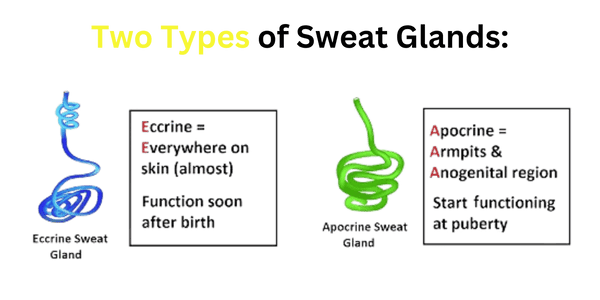
Why Does Skin Sweat And What Does Sweat Do In Your Body?
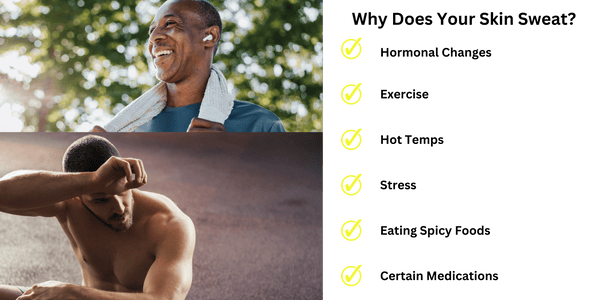
Usually, you sweat when your body is dehydrated or needs a cooldown. While exercising (which causes your hydration levels to plummet), your nervous system triggers your eccrine glands to open the floodgates.3 “By promoting heat loss through evaporation, sweat helps regulate your body temperature thus removing excess heat from your muscles,” explains Adele Haimovic, MD.
Emotional sweat, like when you’re angry or stressed, comes from the apocrine glands and is relatively different from workout-induced sweat.5 “It does not serve a temperature regulatory function, but rather one to combat an impending challenge (think fight or flight response),” says Adam Friedman, MD, professor of dermatology at George Washington University School of Medicine and Health Sciences.
It’s also important to note that in the past, researchers have stated that men sweat more than women. A 2010 study, for example, concluded that women have to work much harder to break a sweat than men. But, to debunk this, a 2017 study found that sweating has nothing to do with gender; instead, sweating is linked to body size.
MOX FUN FACT: Humans are one of only two mammals capable of running long distances (horses are the other one). If it wasn’t for how efficiently humans produce and dissipate sweat, those before us wouldn't have been able to run far while hunting. This means that we likely wouldn’t be able to do as many cardio-heavy activities as we do today.
The Benefits Of Sweat And Exercise
Oftentimes, we associate working out with optimal health and an all-around better quality of life. And while that’s true, the worry about how exercise-induced sweat affects your skin is a valid (and common) concern among gym-goers and those with an adventurous drive. However, sweat – as we mentioned above – is a vital part of being human, and just like exercise, it can have strong, effective skin and health benefits. Here’s a look:
Sweating and Exercise Can Lower Your Risk of High Blood Pressure

According to research, men who work up a sweat at least four times a week are half as likely to develop high blood pressure (a precursor to heart disease) than those who don’t frequent the gym and/or take part in exercise regularly. The study, which was conducted by the University of Eastern Finland, researched 1,620 middle-aged men with early signs of the condition.
The risk of high blood pressure decreased in 46% of the men who worked up a sweat four or more times a week, while a 24% risk decrease was noted for the men that only exerted themselves two times a week. Researchers found that your body temp spikes while sweating, which strengthens your blood vessels and can help lower your risk for health problems.
Sweating Can Detoxify Your Body and Skin

Widely used to make plastics, bisphenol A (BPA) has been linked to obesity, sexual dysfunction, and more. In a 2011 study, Canadian researchers found BPA in the sweat of 80% of the subjects tested. Many of the participants had no detectable BPA levels in their blood or urine, which suggests that sweating may be one of the best ways to detoxify the body of BPA.

Heavy metals like arsenic and lead (suspected carcinogens) can be found in water, food, industrial emissions, and more. They can have negative effects on your heart, brain, kidneys, and immune system. Studies have shown that sweat can concentrate arsenic up to 10 times more than blood and lead up to 300 times more, leading to a really good detoxification.

In addition, sweating produces a naturally antimicrobial peptide (AMP) called dermcidin, which helps to destroy harmful bacteria on the skin, minimizing your risk of infection, acne breakouts, and flare-ups. In fact, scientists have found that AMPs are more effective in the long term than traditional antibiotics as germs aren’t able to build resistance against them.
Regular Exercise and Normal Sweat Production Can Have Anti-aging Effects

Sweating has been proven to boost blood circulation while bringing more nutrients and oxygen to your skin, which is important for your skin’s collagen production. Collagen is vital for healthy bones, skin, blood vessels, and organs. Having low collagen levels can potentially result in a lack of elasticity in the skin, giving you more wrinkles and fine lines.
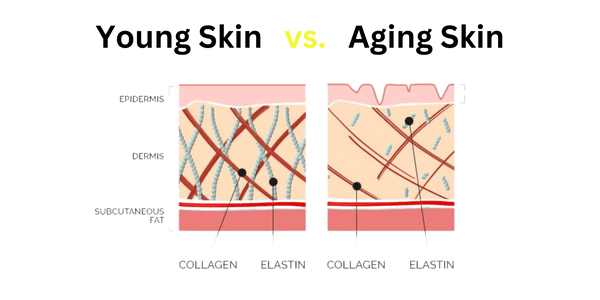

Adding to that, collagen is also known to enhance your skin’s ability to fight free radical damage. Free radicals are unstable atoms that can cause illness and aging, while also damaging your cells. Unfortunately, collagen decreases as we age, which is why things like fine lines and wrinkles tend to make an appearance.
The Bottom Line: Chill Out, the Benefits of Sweat Are Amazing
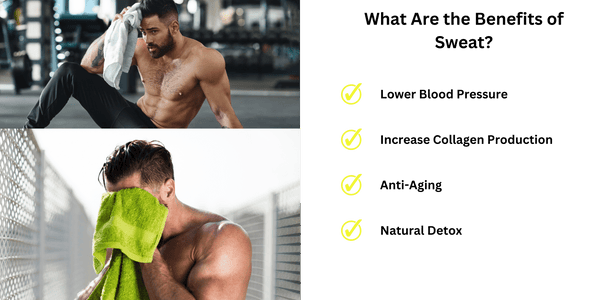
As Forest Gump once said (kind of): “Exercise and sweating go together like peas and carrots.” In fact, the benefits of sweat are so amazing that your skin needs a good workout-induced sweat just as much as your body and health do. As a completely normal human function, sweating can lower your blood pressure and detoxify your skin, while also helping you to maintain a more youthful appearance.
So when you find yourself annoyed at the sweat your skin produces while grinding through your gains, remember that sweat is more than what’s just on the surface; it helps create and maintain strong, young-looking skin that can tackle anything life throws at you. So tell us – what’s your favorite way to break a sweat? Did you know about the benefits of sweat?


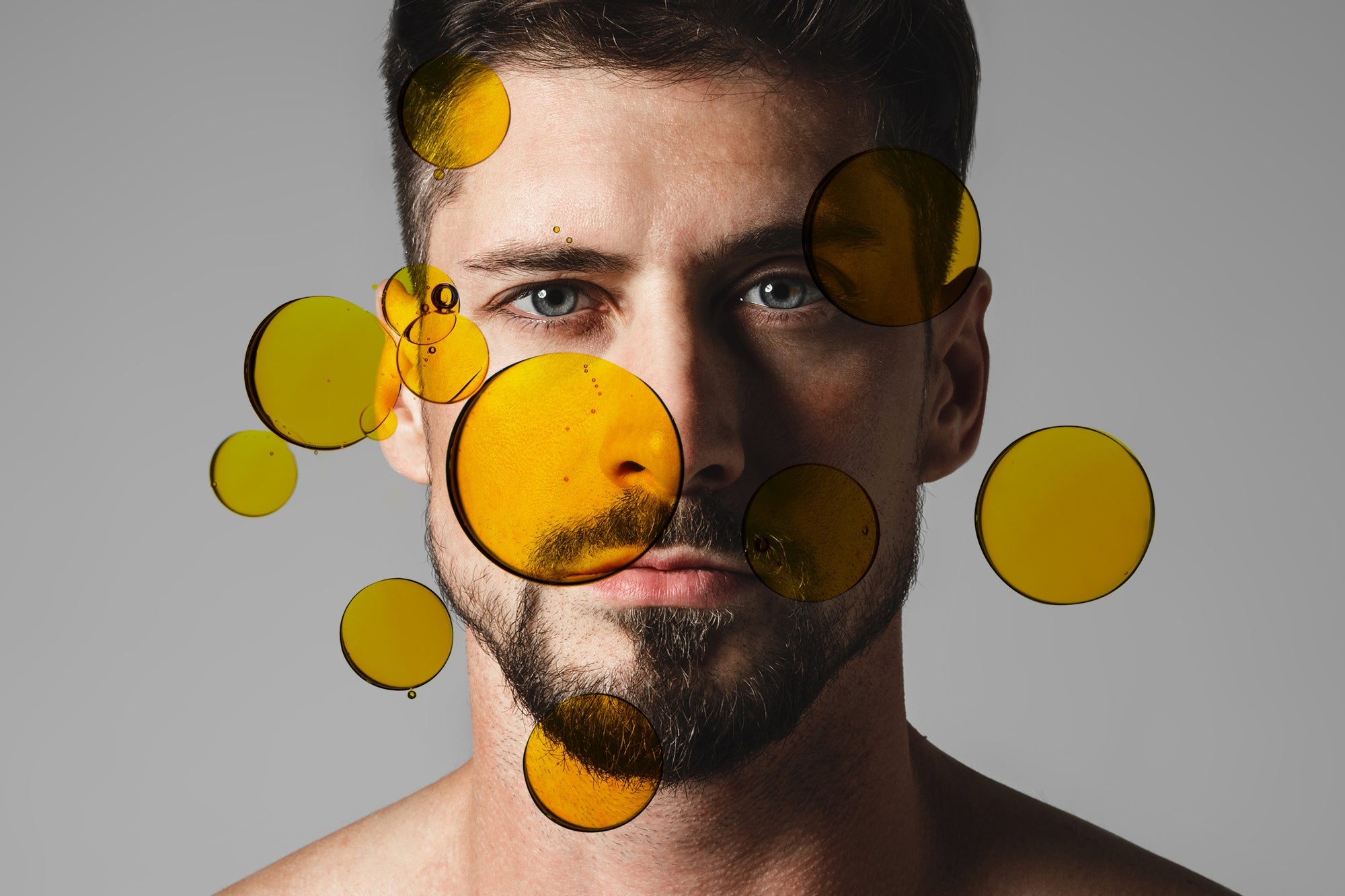

Leave a comment
This site is protected by hCaptcha and the hCaptcha Privacy Policy and Terms of Service apply.